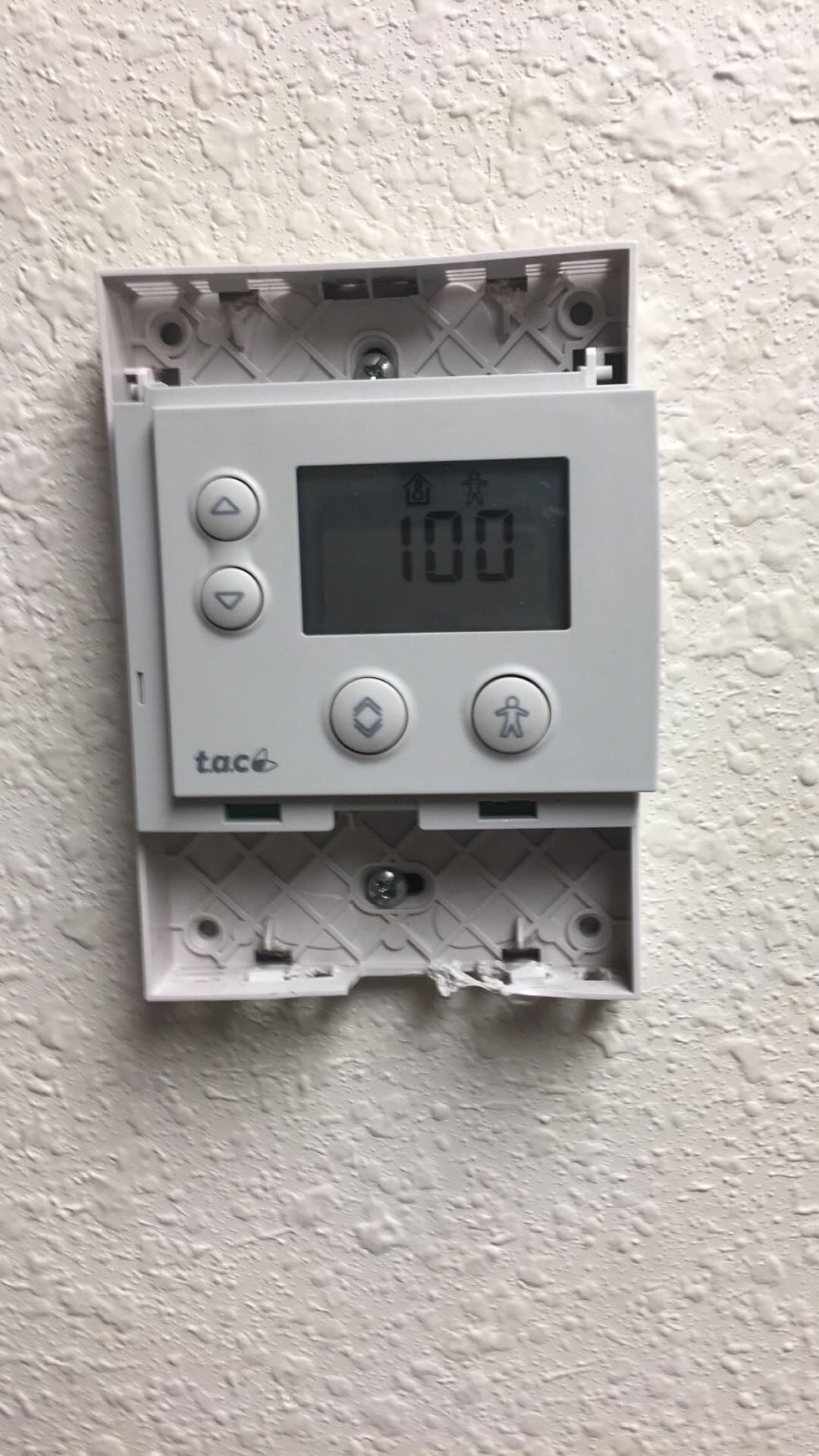VIRGINIA BEACH, Va. -- As many as a hundred junior sailors living at a Naval Air Station Oceana barracks say their rooms have felt like a sauna for weeks on end.
The barracks complex's air conditioning units can't keep up with the sweltering heat that have gripped the East Coast in recent months. The temperature in their rooms has soared to 90 degrees and higher. They can't sleep. One sailor reportedly needed medical attention from a heat rash and dehydration. Instead, some have taken to sleeping at friends' houses off-base or checking into motels nearby. One sailor said they'd slept in their car.
These sailors reported the problems at Buildings 441-445 to their squadrons and commands, but say nothing has been done to cool the stifling heat in their rooms. Sailors have kept windows closed because there's no netting to keep out insects and say the fans they've been given only blow hot air at them.
"Sure, it's a comfort issue for us," said one of the sailors who spoke to Navy Times. "But it's a safety issue more than that. We're not getting enough sleep and [are] coming to work drenched in sweat and drained of energy — not at our best. And we're working on multi-million aircraft."
Requests for comment about the stifling heat in the "Green Tops" barracks from NAS Oceana were referred to Navy Region Mid-Atlantic, who said base officials had received no reports of sailors leaving the barracks due to the heat. They acknowledge the rooms are excessively hot in the aging barracks and say they're giving sailors the option to move.
"We have no reports of any personnel forced to leave or of any sailor that chose to live in their car or stay with friends off base," said Beth Baker, NRMA spokeswoman. She said that in response to Navy Times' query, Oceana's leadership reached out to the squadrons and other tenant commands to ask about barracks issues.
"Command representatives are reengaging with every sailor in the [barracks] to address their concerns," Baker said. "At this time, any sailor concerned with high temperature conditions will be given the opportunity to make alternate accommodations at NAS Oceana or to Dam Neck."
Two sailors in the barracks, who asked for anonymity to discuss their concerns, say they've been reporting these issues to their chain of command for weeks -- to no avail.
"That's insane because my entire chain of command knows about the barracks issues," the sailor said in response to the NRMA statement that there had been no reports. "My chain of command has gone to the base command more than once about this."
On Friday, after Navy Times' query, at least one command official was trying to figure out who had alerted the publication, after sailors' weeks of complaints didn't fix the problems.

Sailors in the "Green Tops" barracks complex at NAS Oceana took images as proof of the spiking temperatures in their rooms amid heat waves in recent months. This one shows the temperature rose as high as 100 degrees Fahrenheit.
'Pushing hot air'
Relocating to a barracks at Dam Neck would be inconvenient for many sailors, who say there is no transportation to get to work from there for those without cars.
One sailor attempted the relocation route, but when checking out the offered alternative room, it was hotter than their current one and they elected not to move. The other downside is that many of the other barracks rooms are shared, while the ones in the hot barracks are single rooms.
Baker said this is common as many sailors are reluctant to give up the private rooms in the impacted barracks, which are the only ones on base that offer such privacy. She added that sailors suffering from the heat can get fans from the Navy and can buy their own air conditioners.
"Anyone who purchased a window unit may keep it in the barracks, provided the window design can support," Baker said. "However, this is discouraged and personnel should work with the housing office to address their concerns and can be relocated to avoid out of pocket expenses."
Fans are also available from the housing office, Baker said. "Thirty-two fans were checked out since July 29th and an additional 25 were ordered, and delivered on September 2nd and available for sailors use," she said.
One sailor said the housing office told told them the fans were back ordered and that they didn't work much when it got really hot.
"And once it gets in the 90's or over 100 [degrees], fans just don't help," the sailor said. "There comes a point where you are just pushing hot air around."
Opening windows would be a nice option, but both sailors said there are no screens on the room's windows.
"That leads to a terrible issue with bugs and even birds and bats as well," the E-3 said.
Meanwhile, the service has began to update these aging barracks. Work has begun on Building 441, the oldest building, which will reopen in January. The remaining four will be renovated over the two years and completed by July 2018.
Mark D. Faram is a former reporter for Navy Times. He was a senior writer covering personnel, cultural and historical issues. A nine-year active duty Navy veteran, Faram served from 1978 to 1987 as a Navy Diver and photographer.





